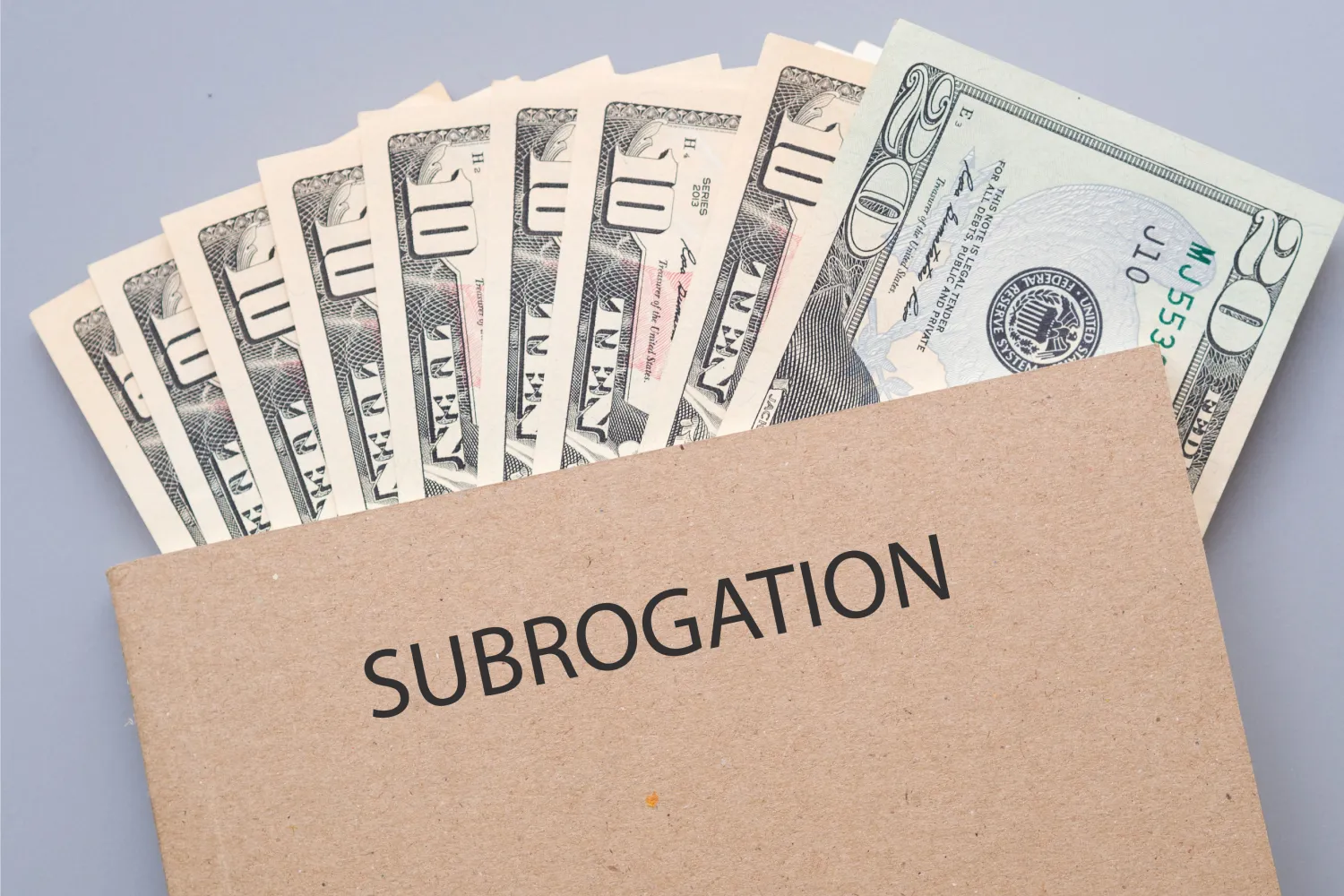When you agree to a medical procedure or treatment, the medical practitioner has to acquire your consent before they can administer any medicine or take any action. However, they can acquire two kinds of consent: express and implied.
Understanding what express consent is, how it works, and how you can give is vital to understanding whether you have grounds for a lawsuit or whether your rights were violated. Let’s take a closer look at express consent in detail. For more information, contact Schwartzapfel Lawyers today online or at 1-516-342-2200 to schedule your free case evaluation now!
Express Consent Explained
Sometimes called informed consent, express consent is explicit written or verbal communication that you consent to a procedure, action, or medication. In most cases, express consent is used in a medical context, though it can also be used or required in other contexts as well.
For example, imagine that you speak to a doctor about a proposed course of treatment. Before the doctor can begin the treatment (which may include medication and/or surgery), they require that you give permission for them to operate on you. They hand you a document that you then sign. In doing so, you provide them with express consent to the procedures and care outlined in the document.
As such, express consent is often used as a legally binding type of permission. It proves:
- That a person had full knowledge and awareness of a course of action or treatment
- That the person gave permission to a second or third party to take a certain action or perform a certain type of treatment
The Importance of Express Consent
Express consent is highly important for liability purposes.
If you gave your express consent to a medical professional, marketer, or any other individual or organization, you cannot sue them if your express consent also included knowledge of possible risks. For example, if a doctor proposes surgery to treat a medical condition but notes that the surgery carries certain risks, they may ask for express consent to perform the surgery.
Note: If you provide your express consent and subsequently become aware of hypothetical side effects, you typically cannot sue the doctor for medical malpractice. If, however, a doctor operated on you without your consent (and you were in a position to give consent), you may have grounds for a lawsuit if you discover side effects afterwards.
Similarly, express consent is important for determining what you actually agreed to in a complex situation. For another example, imagine signing up for a marketing email from one of your favorite brands. You give your express consent to receive marketing emails only from that business.
That said, the business quickly routes your email to other subsidiary brands, and you suddenly see many spam emails showing up in your email inbox. In this way, the business is in the wrong and could be intentionally sued or punished in some other way since you did not give express consent for your email to be shared with other brands.
Express consent is important because it is:
- Specific
- Informed
- Consensual
- Voluntary
- Given with full knowledge and clear comprehension
If you need help with a case involving express consent, the skilled team at Schwartzapfel Lawyers is available online or at 1-516-342-2200 to help guide you towards the results you’re entitled to. Call now!
When Is Express Consent Used?
Express consent can be used in many different contexts. Medical express consent is the most important and common case. Doctors and other medical practitioners require your express consent to do almost anything, with the exception of emergency procedures.
If you show up to the emergency room and your life is in danger, medical staff can usually operate on you or provide whatever treatment is necessary if you are unable to consent.
However, express consent is also commonly used in cases involving:
- Marketing
- Data sharing
- Product sign-ups
- Clinical trials
- And beyond!
How Is Express Consent Given?
Express consent is usually written. In fact, most express consent is marked by a signature; a doctor, lawyer, marketer, or some other person will likely hand you a document breaking down the details of the request. If you sign on the dotted line, you give your express consent for the request to be fulfilled.
For example, if a doctor wants to perform tests on you or do a blood test, they may require you to sign a form giving your express consent for the procedure to be carried out. You give your signature, and that counts as express consent in a court of law.
In some cases, express consent may be given verbally, however. As another example, if you are in an emergency room and are still conscious and responsive, medical personnel may ask your permission to do certain things to your body. If you give verbal consent, that may qualify as express consent in a future case.
Can Express Consent Be Changed Or Withdrawn?
In a word: absolutely. Express consent is by no means permanent. You can withdraw your express consent, although it may not take effect — in a legal sense — immediately.
For instance, if you give your express consent for a medical procedure while fully aware of potential side effects, and then experience those side effects at a later date, you typically cannot retroactively withdraw your express consent for the procedure for lawsuit purposes.
However, you can agree to sign up for a medical procedure, then withdraw your consent before the procedure takes place. To learn more about this distinction, call Schwartzapfel Lawyers at 1-516-342-2200 for a free consultation now.
Expressed Consent vs. Implied Consent
Express consent is oftentimes best understood in its relation to implied consent. Implied consent is consent given based on the facts or circumstances of the unique situation. This can make it a legally tricky concept.
For example, if you arrive at your doctor’s office for the purpose of receiving a seasonal flu shot, and you approach their station with your sleeve rolled up, the doctor could claim you gave them implied consent to administer the flu shot.
Similarly, if you go to a laboratory to have your blood drawn, you provide your implied consent to have your blood drawn by a technical professional.
Examples Of Implied Consent
Implied consent can take many different forms, including but not limited to:
- A doctor inferring consent based on the patient’s actions (especially when the patient is not fully responsive)
- Circumstances imply a patient or person’s consent (e.g., a patient stumbles into an emergency receiving room after a workplace accident, then falls unconscious)
- A person clearly nods in the affirmative to a question or request
- A person makes an appointment for treatment or some other service, then shows up
- A person follows a doctor’s or other professional’s instructions during a treatment or procedure
In most cases, implied consent is understood based on common sense. However, medical professionals make grievous errors in medical malpractice cases if they do not get express consent for new, untested, or uncertain procedures and treatments.
For instance, if a doctor has access to a revolutionary cancer treatment, they must get express consent to use it on a patient. That’s because the cancer treatment may have unintended side effects or consequences. The patient cannot reasonably be expected to understand those potential consequences, so implied consent is not enough.
To learn more now, call Schwartzapfel Lawyers at 1-516-342-2200! Alternatively, you can schedule your free consultation when you visit us online today.
Express Consent In Medical Malpractice Cases
Express consent is often a sticking point or major element in medical malpractice cases. If you believe you or a loved one was mistreated by a medical professional because they did not get express consent for a medication, treatment, or procedure, you may have grounds for a successful lawsuit.
You should know, however, that, in response, doctors and other qualified medical professionals may claim that they acquired express consent for you, or that implied consent was enough for them to reasonably carry out their actions. As such, it’s important to have a knowledgeable legal representative on your side if you sue a medical organization or individual for failing to acquire express consent.
Moreover, the same is often true if you have any other grievance against another party or professional for not getting your express consent when it was required.
As you can tell, this area of law can be very gray and indistinct, so, please, don’t go to court alone when you don’t have to. Instead, call Schwartzapfel Lawyers and allow our experienced team the honor and privilege of helping you recover all that you have lost.
Contact Schwartzapfel Lawyers Today
In a nutshell, express consent is explicit written or verbal permission to do something. If a medical practitioner did not get your express consent before giving you medication or performing some treatment, and if you are injured as a result, you may have grounds for a successful malpractice lawsuit.
However, your lawsuit will only truly be successful with the right lawyers on your side. Schwartzapfel Lawyers’ knowledgeable attorneys can help you understand your legal options and represent you effectively both in and out of court.
Call 1-516-342-2200 today or visit us online to learn how we can fight — and win — for you!
DISCLAIMER: Nothing on this page should be considered legal advice. You should seek the appropriate counsel your situation requires. For more information, call 1-516-342-2200 now!
Sources:
Schwartzapfel Lawyers, P.C. | Fighting For You™™
Definition: express consent from 18 USC § 2725(5) | LII / Legal Information Institute
What is express consent? | TechTarget


















